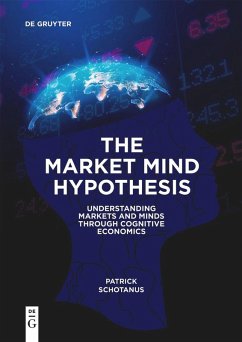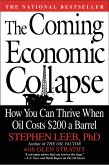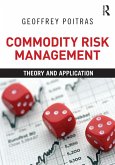What is economics' missing link? Recent economic crises have had a devastating impact on society. Worryingly, they gravely risked a collapse of the financial system. These crises also painfully revealed economics' blind spots. Crucially, economics is not an innocent bystander but central to the problem.
In this pioneering book, Patrick Schotanus explains that economics' mechanical worldview is the ontological error which leads to flawed thinking and faulty practices. The Market Mind Hypothesis (MMH) thus calls it "mechanical economics": it not only erroneously views but also dangerously treats the economy as a machine, the market as an automaton, and its agents as robots. Inspired by heterodox economic and leading cognitive thinkers, this book offers an alternative paradigm. Central to MMH's psychophysical worldview is the fact that consumers, investors, and other participants are conscious beings and that their minds' extension makes consciousness a reality in markets, exemplified by market mood. Specifically, denial of the complex mind~matter exchanges as the essence of markets means the extended mind~body problem is economics' elephant in the room.
The book argues that if mechanical economics is the answer, we have been asking the wrong questions. Moreover, we will not solve our economic predicaments by doubling down on the assumption of rationality, nor by identifying yet another behavioural bias. Instead, scholars and students of economics and finance as well as finance practitioners need to investigate-through cognitive economics-the deep links between markets and minds to better understand both.
With a foreword by investment strategist Russell Napier, an intermezzo by neuroscientist and complexity pioneer Scott Kelso, and an afterword by 4E cognition philosopher Julian Kiverstein.
In this pioneering book, Patrick Schotanus explains that economics' mechanical worldview is the ontological error which leads to flawed thinking and faulty practices. The Market Mind Hypothesis (MMH) thus calls it "mechanical economics": it not only erroneously views but also dangerously treats the economy as a machine, the market as an automaton, and its agents as robots. Inspired by heterodox economic and leading cognitive thinkers, this book offers an alternative paradigm. Central to MMH's psychophysical worldview is the fact that consumers, investors, and other participants are conscious beings and that their minds' extension makes consciousness a reality in markets, exemplified by market mood. Specifically, denial of the complex mind~matter exchanges as the essence of markets means the extended mind~body problem is economics' elephant in the room.
The book argues that if mechanical economics is the answer, we have been asking the wrong questions. Moreover, we will not solve our economic predicaments by doubling down on the assumption of rationality, nor by identifying yet another behavioural bias. Instead, scholars and students of economics and finance as well as finance practitioners need to investigate-through cognitive economics-the deep links between markets and minds to better understand both.
With a foreword by investment strategist Russell Napier, an intermezzo by neuroscientist and complexity pioneer Scott Kelso, and an afterword by 4E cognition philosopher Julian Kiverstein.
Dieser Download kann aus rechtlichen Gründen nur mit Rechnungsadresse in A, B, BG, CY, CZ, D, DK, EW, E, FIN, F, GR, HR, H, IRL, I, LT, L, LR, M, NL, PL, P, R, S, SLO, SK ausgeliefert werden.









